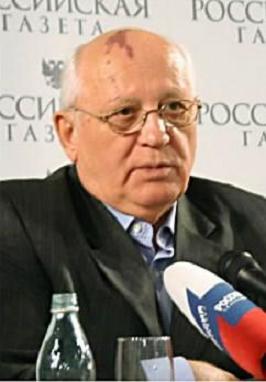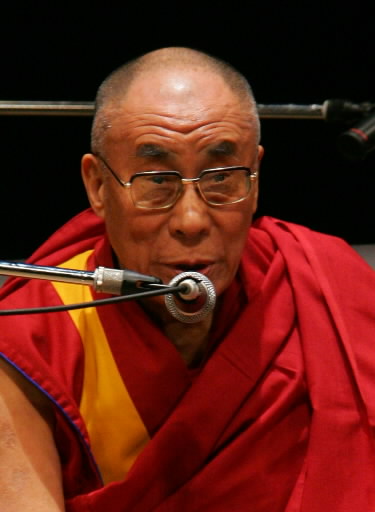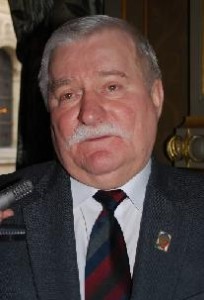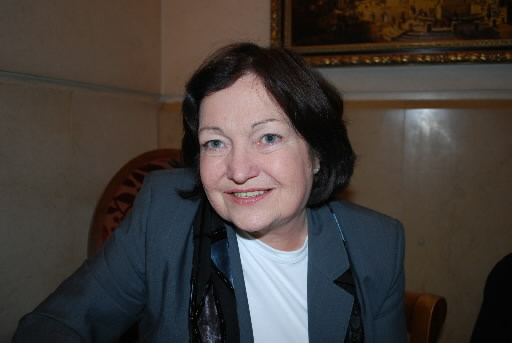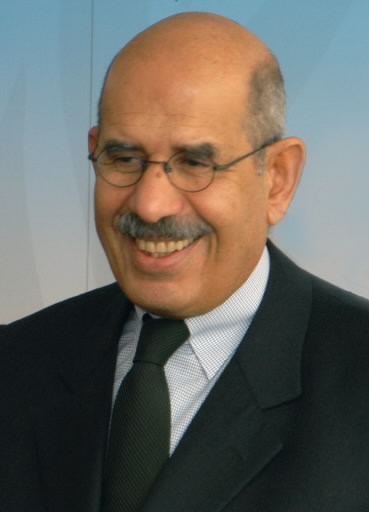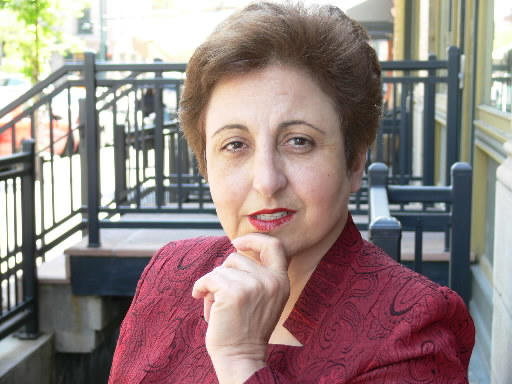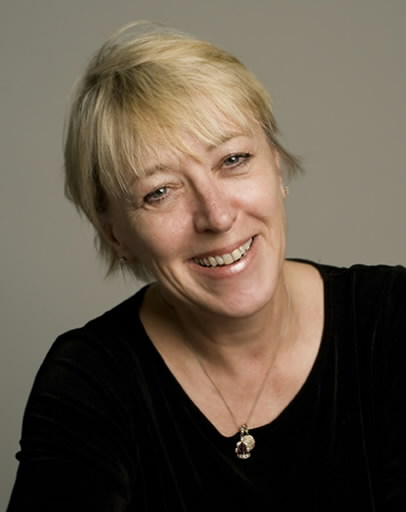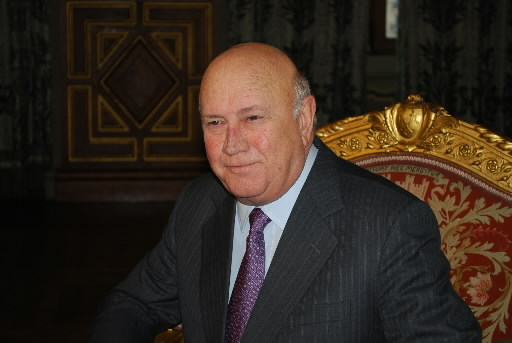"World Summit of Nobel Peace Laureates" opens in Hiroshima on November 12
Nov. 9, 2010
by Yumi Kanazaki, Staff Writer
“The 2010 World Summit of Nobel Peace Laureates,” which will bring together Nobel Peace Prize laureates and representatives of Nobel Peace Prize-winning organizations, will be held in the city of Hiroshima from November 12 to 14. The theme of the gathering is “The Legacy of Hiroshima: A World Without Nuclear Weapons.” The summit will be attended by eight individual laureates and 13 organizations that have been awarded the prize. Leaders of various nationalities and backgrounds, who have displayed leadership through diverse conditions, will unite in wisdom and appeal to the world from Hiroshima for the abolition of nuclear weapons.
The first World Summit of Nobel Peace Laureates was held in 1999, organized by the Gorbachev Foundation with the support of the City of Rome. The Gorbachev Foundation was established by Mikhail Gorbachev, former president of the Soviet Union and a Nobel Peace Prize laureate. To date, the summit has been held eight times in Rome and once in Paris and Berlin, respectively. At the summit, the participants have discussed such issues as poverty, violence, conflict, and nuclear weapons, all of which are threats to peace.
The idea of holding the 11th summit in Hiroshima was prompted in 2006 when Hiroshima Mayor Tadatoshi Akiba was invited to the summit held in Rome, where he conveyed to the world the message of peace from Hiroshima. This past spring, the summit’s secretariat in Rome approached the City of Hiroshima to propose holding this year’s gathering in the Japanese city.
In July, the City of Hiroshima and Hiroshima Prefecture set up the “World Summit of Nobel Peace Laureates Support and Promotion Council” and began to make preparations for the summit. A letter was also sent to U.S. President Barack Obama, the 2009 Nobel Peace Prize laureate, asking that he attend the gathering, but his participation was not realized.
The three-day summit will be attended by eight Nobel Peace laureates, including the 14th Dalai Lama, as well as another 100 people consisting of representatives of organizations that have won the Nobel Peace Prize and experts in the field of nuclear disarmament. Wuer Kaixi, a former student leader in the pro-democracy protests at Tiananmen Square in 1989, will also attend the summit as a surrogate for the imprisoned Liu Xiaobo, a human rights activist in China and this year’s Nobel Peace Prize laureate.
On November 12 and 13, at the Grand Prince Hotel Hiroshima, discussion will be held in such sessions as “A World Without Violence: Does Security Need Nuclear Weapons?” and “Progress Towards a World Without Nuclear Weapons: The Results of the Ongoing International Negotiations and the Role of Cities and of Civil Society.” On November 14, the summit will conclude with a final gathering at Peace Memorial Park.
The summit will only be energized by the widest possible participation of citizens. The application process for observing the sessions on November 11 and 12 has already closed, but the event to be held in Peace Memorial Park on November 14 can be attended freely. The City of Hiroshima calls on local citizens to share a historic moment with the Nobel Peace Prize laureates.
The event, called the Peace Appeal, will include the Hiroshima Final Declaration and will be held on November 14 from 9:30 a.m. to 10:40 a.m. in front of the Cenotaph for the A-bomb Victims. All eight of the Nobel Peace Prize laureates attending the summit will, in turn, deliver remarks to appeal for the abolition of nuclear weapons. On that day, the lawn in the park, which is usually closed except for the annual Peace Memorial Ceremony, will be open to the public.
Another feature of the Peace Appeal is the Peace Award Ceremony. The Nobel Peace Prize laureates select the recipient of this prize. Past recipients of the award have been such celebrities as the American actor George Clooney. The recipient of this year’s award will be announced about a week before the summit opens.
Plans have been made by citizens to stage outdoor events to ring in the summit. On November 11 at 3:30 p.m., the well-known illustrator Seitaro Kuroda will paint to the accompaniment of the trumpet player Toshinori Kondo on the riverbank across from the A-bomb Dome.
At 5:30 p.m. that same day, about 1,000 candles placed in front of the A-bomb Dome will be set alight. A rally will then be held at that location, with the Nobel Peace Prize laureates, their participation voluntary, engaging in dialogue with citizens to appeal for the fulfillment of nuclear abolition.
Mikhail Gorbachev was born in 1931. In 1985 he became General Secretary of the Communist Party of the former Soviet Union. He signed the Strategic Arms Reduction Treaty (START) with George H. W. Bush, then president of the U.S., and permitted the democratization of Eastern Europe. From 1989, marking the end of the Cold War, to 1991, when the Soviet Union dissolved, he served as that nation’s president. The 1986 Reagan-Gorbachev Summit, where both countries were close to an agreement on nuclear abolition, laid the basis for the “world without nuclear weapons” later advocated by U.S. President Barack Obama.
The 14th Dalai Lama was born in 1935. At the age of two, he was recognized as the reincarnation of the 13th Dalai Lama, and was enthroned in 1940. In 1959, during the Tibetan uprising against Chinese control, he fled to India. Since that time, as the political and religious leader of the government in exile, located in northern India, he has headed a non-violent campaign to establish an autonomous government in Tibet.
Lech Walesa was born in 1943. In 1967, he was employed in the Gdansk shipyards as an electrician. He led a nationwide strike and became the chairman of Solidarity, an autonomous trade union. When martial law was imposed the following year, Solidarity was outlawed and he was detained for about a year. In 1989, Solidarity won a landslide victory in the first free election in Poland and a non-communist government was established. From 1990 to 1995, he served as the nation’s president.
Mairead Maguire was born in 1944. She became active with the peace movement in Northern Ireland after an accident stemming from that nation’s conflict ended the lives of her sister’s children. In 1976, she established the Northern Ireland Peace Movement (later renamed Community of Peace People) with the aim of solving conflicts through peaceful means. She has also made efforts to address the issue of Palestine. This past June, while on board a ship headed for Gaza, part of the “Gaza Freedom Flotilla,” she was detained and deported by Israel.
Mohamed ElBaradei was born in Cairo, Egypt in 1942. He earned a Ph.D. in international law from a U.S. university and, in 1962, joined the Foreign Ministry of Egypt. In 1984, he moved to the IAEA and assumed the post of legal advisor in New York. From 1997 to 2009 he served as director general. Among his activities as head of the IAEA, he made strong efforts in relation to nuclear non-proliferation through inspections in Iraq, suspected of holding weapons of mass destruction, as well as the nuclear issues involving North Korea and Iran.
Shirin Ebadi was born in 1947. She earned a Ph.D. in law from Tehran University and became the first female judge in Iran. She was demoted to a clerical position after the Iranian Islamic Revolution in 1979 on the grounds of her gender as a woman. In 1992, she began practicing law and focused her efforts on democratic reforms and protecting the rights of women and children. She faces pressure from the Iranian government, which, in one instance, allegedly confiscated her Nobel Peace Prize medal.
Jody Williams was born in 1950. After graduating from college, she expressed her opposition to U.S. policy in Central America by becoming involved in a movement which provided humanitarian support in El Salvador. In 1992, she established the International Campaign to Ban Landmines (ICBL). She became the architect of the realization of an international treaty banning antipersonnel landmines, which was signed in December 1997. Based on this experience, she has been an active voice in promoting a nuclear weapons convention.
Frederik De Klerk was born in 1936. In 1972, he was elected to Parliament as a member of the National Party. He served as president of South Africa from 1989 to 1996. In 1990, he released Nelson Mandela, who was opposed to apartheid and subsequently imprisoned. He received the Nobel Peace Prize along with Mr. Mandela. In 1993, he announced that the six nuclear weapons produced by the country had been dismantled. In 1997, after his tenure as president ended, he visited Hiroshima and made an appeal for nuclear abolition.
Intergovernmental Panel on Climate Change (IPCC)
Geneva, Switzerland, recipient in 2007 Honored for their efforts to amass and disseminate greater knowledge about man-made climate change.
International Atomic Energy Agency (IAEA)
Vienna, Austria, recipient in 2005 Honored for their efforts to ensure that nuclear energy is used for peaceful purposes and that military purposes are prevented.
United Nations
New York, USA, recipient in 2001 Honored for their work to build a more ordered and more peaceful world.
Medecins Sans Frontiers (MSF)
Geneva, Switzerland, recipient in 1999 Honored for their efforts to provide medical support to refugees and victims of war.
Pugwash Conferences on Science and World Affairs (PUGWASH)
Rome, Italy, recipient in 1995 Honored for their efforts to eliminate nuclear weapons from the viewpoint of scientists.
International Physicians for the Prevention of Nuclear War (IPPNW)
Somerville, USA, recipient in 1985 Honored for their work in research and education regarding the medical impact of nuclear war.
United Nations High Commissioner for Refugees (UNHCR)
Geneva, Switzerland, recipient in 1954, 1981 Honored for their humanitarian support activities in providing protection to refugees.
Amnesty International (AI)
London, UK, recipient in 1977 Honored for protecting the human rights of prisoners of conscience, who have been subject to unjust arrest.
International Labour Organization (ILO)
Geneva, Switzerland, recipient in 1969 Honored for their efforts to improve labor conditions and protect workers.
International Committee of the Red Cross (ICRC), International Federation of Red Cross and Red Crescent Societies
Geneva, Switzerland, recipient in 1963 Honored jointly for their work in protecting and providing medical aid to victims of conflict; ICRC was also awarded the prize in 1917 and 1944.
American Friends Service Committee (AFSC)
Philadelphia, USA, recipient in 1947 Honored for their efforts to support war refugees in various locations and post-war reconstruction.
International Peace Bureau (IPB)
Geneva, Switzerland, recipient in 1910 Honored for their work to advance disarmament, strengthen international law, and contribute to resolving conflicts.
Wisdom gathers in Hiroshima to advance a world without nuclear weapons
“The 2010 World Summit of Nobel Peace Laureates,” which will bring together Nobel Peace Prize laureates and representatives of Nobel Peace Prize-winning organizations, will be held in the city of Hiroshima from November 12 to 14. The theme of the gathering is “The Legacy of Hiroshima: A World Without Nuclear Weapons.” The summit will be attended by eight individual laureates and 13 organizations that have been awarded the prize. Leaders of various nationalities and backgrounds, who have displayed leadership through diverse conditions, will unite in wisdom and appeal to the world from Hiroshima for the abolition of nuclear weapons.
The first World Summit of Nobel Peace Laureates was held in 1999, organized by the Gorbachev Foundation with the support of the City of Rome. The Gorbachev Foundation was established by Mikhail Gorbachev, former president of the Soviet Union and a Nobel Peace Prize laureate. To date, the summit has been held eight times in Rome and once in Paris and Berlin, respectively. At the summit, the participants have discussed such issues as poverty, violence, conflict, and nuclear weapons, all of which are threats to peace.
The idea of holding the 11th summit in Hiroshima was prompted in 2006 when Hiroshima Mayor Tadatoshi Akiba was invited to the summit held in Rome, where he conveyed to the world the message of peace from Hiroshima. This past spring, the summit’s secretariat in Rome approached the City of Hiroshima to propose holding this year’s gathering in the Japanese city.
In July, the City of Hiroshima and Hiroshima Prefecture set up the “World Summit of Nobel Peace Laureates Support and Promotion Council” and began to make preparations for the summit. A letter was also sent to U.S. President Barack Obama, the 2009 Nobel Peace Prize laureate, asking that he attend the gathering, but his participation was not realized.
The three-day summit will be attended by eight Nobel Peace laureates, including the 14th Dalai Lama, as well as another 100 people consisting of representatives of organizations that have won the Nobel Peace Prize and experts in the field of nuclear disarmament. Wuer Kaixi, a former student leader in the pro-democracy protests at Tiananmen Square in 1989, will also attend the summit as a surrogate for the imprisoned Liu Xiaobo, a human rights activist in China and this year’s Nobel Peace Prize laureate.
On November 12 and 13, at the Grand Prince Hotel Hiroshima, discussion will be held in such sessions as “A World Without Violence: Does Security Need Nuclear Weapons?” and “Progress Towards a World Without Nuclear Weapons: The Results of the Ongoing International Negotiations and the Role of Cities and of Civil Society.” On November 14, the summit will conclude with a final gathering at Peace Memorial Park.
Sharing a historic moment at the Cenotaph for the A-bomb Victims
The summit will only be energized by the widest possible participation of citizens. The application process for observing the sessions on November 11 and 12 has already closed, but the event to be held in Peace Memorial Park on November 14 can be attended freely. The City of Hiroshima calls on local citizens to share a historic moment with the Nobel Peace Prize laureates.
The event, called the Peace Appeal, will include the Hiroshima Final Declaration and will be held on November 14 from 9:30 a.m. to 10:40 a.m. in front of the Cenotaph for the A-bomb Victims. All eight of the Nobel Peace Prize laureates attending the summit will, in turn, deliver remarks to appeal for the abolition of nuclear weapons. On that day, the lawn in the park, which is usually closed except for the annual Peace Memorial Ceremony, will be open to the public.
Another feature of the Peace Appeal is the Peace Award Ceremony. The Nobel Peace Prize laureates select the recipient of this prize. Past recipients of the award have been such celebrities as the American actor George Clooney. The recipient of this year’s award will be announced about a week before the summit opens.
Plans have been made by citizens to stage outdoor events to ring in the summit. On November 11 at 3:30 p.m., the well-known illustrator Seitaro Kuroda will paint to the accompaniment of the trumpet player Toshinori Kondo on the riverbank across from the A-bomb Dome.
At 5:30 p.m. that same day, about 1,000 candles placed in front of the A-bomb Dome will be set alight. A rally will then be held at that location, with the Nobel Peace Prize laureates, their participation voluntary, engaging in dialogue with citizens to appeal for the fulfillment of nuclear abolition.
Nobel Peace Prize laureates and Nobel Peace Prize-winning organizations to be present at the summit
Mikhail Gorbachev
former President of the Soviet Union, recipient in 1990
Mikhail Gorbachev was born in 1931. In 1985 he became General Secretary of the Communist Party of the former Soviet Union. He signed the Strategic Arms Reduction Treaty (START) with George H. W. Bush, then president of the U.S., and permitted the democratization of Eastern Europe. From 1989, marking the end of the Cold War, to 1991, when the Soviet Union dissolved, he served as that nation’s president. The 1986 Reagan-Gorbachev Summit, where both countries were close to an agreement on nuclear abolition, laid the basis for the “world without nuclear weapons” later advocated by U.S. President Barack Obama.
The 14th Dalai Lama
the supreme leader of Tibetan Buddhism, recipient in 1989
The 14th Dalai Lama was born in 1935. At the age of two, he was recognized as the reincarnation of the 13th Dalai Lama, and was enthroned in 1940. In 1959, during the Tibetan uprising against Chinese control, he fled to India. Since that time, as the political and religious leader of the government in exile, located in northern India, he has headed a non-violent campaign to establish an autonomous government in Tibet.
Lech Walesa
former President of the Republic of Poland, recipient in 1983
Lech Walesa was born in 1943. In 1967, he was employed in the Gdansk shipyards as an electrician. He led a nationwide strike and became the chairman of Solidarity, an autonomous trade union. When martial law was imposed the following year, Solidarity was outlawed and he was detained for about a year. In 1989, Solidarity won a landslide victory in the first free election in Poland and a non-communist government was established. From 1990 to 1995, he served as the nation’s president.
Mairead Maguire
peace activist in Northern Ireland, recipient in 1976
Mairead Maguire was born in 1944. She became active with the peace movement in Northern Ireland after an accident stemming from that nation’s conflict ended the lives of her sister’s children. In 1976, she established the Northern Ireland Peace Movement (later renamed Community of Peace People) with the aim of solving conflicts through peaceful means. She has also made efforts to address the issue of Palestine. This past June, while on board a ship headed for Gaza, part of the “Gaza Freedom Flotilla,” she was detained and deported by Israel.
Mohamed ElBaradei
former Director General of the International Atomic Energy Agency (IAEA), recipient in 2005
Mohamed ElBaradei was born in Cairo, Egypt in 1942. He earned a Ph.D. in international law from a U.S. university and, in 1962, joined the Foreign Ministry of Egypt. In 1984, he moved to the IAEA and assumed the post of legal advisor in New York. From 1997 to 2009 he served as director general. Among his activities as head of the IAEA, he made strong efforts in relation to nuclear non-proliferation through inspections in Iraq, suspected of holding weapons of mass destruction, as well as the nuclear issues involving North Korea and Iran.
Shirin Ebadi
Iranian human rights activist, recipient in 2003
Shirin Ebadi was born in 1947. She earned a Ph.D. in law from Tehran University and became the first female judge in Iran. She was demoted to a clerical position after the Iranian Islamic Revolution in 1979 on the grounds of her gender as a woman. In 1992, she began practicing law and focused her efforts on democratic reforms and protecting the rights of women and children. She faces pressure from the Iranian government, which, in one instance, allegedly confiscated her Nobel Peace Prize medal.
Jody Williams
American anti-landmine activist, recipient in 1997
Jody Williams was born in 1950. After graduating from college, she expressed her opposition to U.S. policy in Central America by becoming involved in a movement which provided humanitarian support in El Salvador. In 1992, she established the International Campaign to Ban Landmines (ICBL). She became the architect of the realization of an international treaty banning antipersonnel landmines, which was signed in December 1997. Based on this experience, she has been an active voice in promoting a nuclear weapons convention.
Frederik De Klerk
former President of South Africa, recipient in 1993
Frederik De Klerk was born in 1936. In 1972, he was elected to Parliament as a member of the National Party. He served as president of South Africa from 1989 to 1996. In 1990, he released Nelson Mandela, who was opposed to apartheid and subsequently imprisoned. He received the Nobel Peace Prize along with Mr. Mandela. In 1993, he announced that the six nuclear weapons produced by the country had been dismantled. In 1997, after his tenure as president ended, he visited Hiroshima and made an appeal for nuclear abolition.
Intergovernmental Panel on Climate Change (IPCC)
Geneva, Switzerland, recipient in 2007 Honored for their efforts to amass and disseminate greater knowledge about man-made climate change.
International Atomic Energy Agency (IAEA)
Vienna, Austria, recipient in 2005 Honored for their efforts to ensure that nuclear energy is used for peaceful purposes and that military purposes are prevented.
United Nations
New York, USA, recipient in 2001 Honored for their work to build a more ordered and more peaceful world.
Medecins Sans Frontiers (MSF)
Geneva, Switzerland, recipient in 1999 Honored for their efforts to provide medical support to refugees and victims of war.
Pugwash Conferences on Science and World Affairs (PUGWASH)
Rome, Italy, recipient in 1995 Honored for their efforts to eliminate nuclear weapons from the viewpoint of scientists.
International Physicians for the Prevention of Nuclear War (IPPNW)
Somerville, USA, recipient in 1985 Honored for their work in research and education regarding the medical impact of nuclear war.
United Nations High Commissioner for Refugees (UNHCR)
Geneva, Switzerland, recipient in 1954, 1981 Honored for their humanitarian support activities in providing protection to refugees.
Amnesty International (AI)
London, UK, recipient in 1977 Honored for protecting the human rights of prisoners of conscience, who have been subject to unjust arrest.
International Labour Organization (ILO)
Geneva, Switzerland, recipient in 1969 Honored for their efforts to improve labor conditions and protect workers.
International Committee of the Red Cross (ICRC), International Federation of Red Cross and Red Crescent Societies
Geneva, Switzerland, recipient in 1963 Honored jointly for their work in protecting and providing medical aid to victims of conflict; ICRC was also awarded the prize in 1917 and 1944.
American Friends Service Committee (AFSC)
Philadelphia, USA, recipient in 1947 Honored for their efforts to support war refugees in various locations and post-war reconstruction.
International Peace Bureau (IPB)
Geneva, Switzerland, recipient in 1910 Honored for their work to advance disarmament, strengthen international law, and contribute to resolving conflicts.

